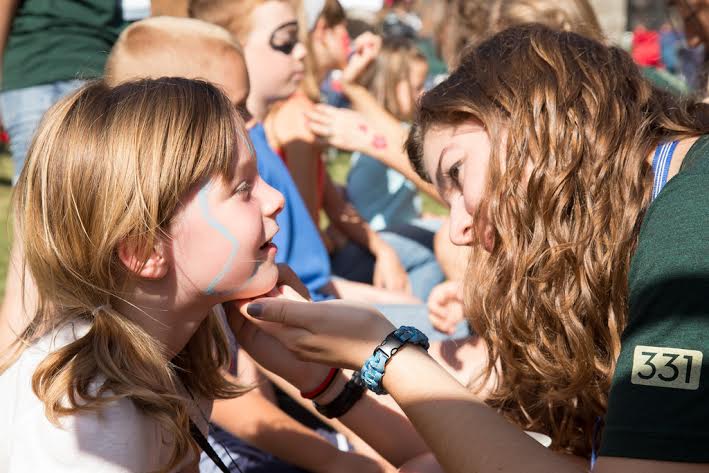Campfires. Cabins. Counselors. These few words may come to mind when one thinks about summer camps. Every summer, Biola students spend three months away from school and work with children and families out in nature.
When friends and family hear that someone they know was a camp counselor, they might picture them roasting marshmallows for s’mores and singing camp songs to no avail. But what does working at camp really look like?
A JOB OF DISCIPLINE
Senior music and ministries major Mailey Augustine worked at Hume Lake this summer. This was Augustine’s first summer spent at a camp and she was one of 10 lead counselors at the high school camp. This meant she looked after over 1,000 campers each week for 12 weeks.
“The hardest part of the job is dealing with a lot of discipline… you usually just think of the fun aspects,” Augustine said. “It’s a very intense job and I don’t think a lot of people know that.”
“The Lord really expanded my ministry and taught me that there’s so much to His Kingdom and ministry on earth,” Augustine said.
A LIFE CHANGING EXPERIENCE
Junior communications major Dakota Shyres worked at Forest Home summer camp for the past two years.
“It takes a certain kind of person to work at camp,” Shyres said. “Most people don’t realize it’s actually a hard job…there’s a lot of behind the scenes that’s really heartbreaking.”
Shyres spent her summer as a child care assistant counselor, which meant working seven days a week with less than 24 hours off and practically no time alone. She spent her days leading devotionals and Bible studies, organizing seminars, giving sermons and having one-on-one time with the girls.
“Ninety-eight percent of my summer is dedicated to them. I’m there to listen to them and help guide them,” Shyres said.
Shyres believed God used her as a vessel for brokenness. “Both summers I’ve worked at camp have been absolutely life changing for me,” Shryes said.
BEING INTENTIONAL
Even though working at a camp requires all of a worker’s energy and time, “This was exactly where the Lord wanted me for the summer and I thrived in it,” said Stacey Perron, senior Christian ministries major.
Perron spent her third summer in a row working at Frontier Ranch in Scotts Valley, California. She was a camp counselor for the past two years but this year she took on the role of team counselor, which meant overseeing the 21 female counselors on staff.
“The past three summers have helped me a lot with my major and doing different ministries. The counselors are my age and I learned how to sit down with people and see how they are actually doing, you have to be very intentional,” Perron said.
EXPERIENCE OVER MONEY
Sophomore Christian ministries major Megan Shafer was a counselor for the Mt. Hermon family camp childcare. She spent nine weeks babysitting infants to five year olds while their parents attended camp sessions.
“You get to see what everyday ministry looks like and you quickly learn how to be intentional and genuine with one another. It’s not just about loving each other when it’s easy,” Shafer said.
This was Shafer’s first summer working at a camp and she hopes to return to Mt. Hermon next summer.
“You work at a summer camp for the experience, not money. I would do it and not get paid,” Shafer said.
All four of these students said they love their jobs and would go back to camp in a heartbeat. Not only were they able to serve God through their positions, but they also felt God used their experiences to open their eyes and learn from others.
“Everyone should work at camp, it brings a very unique experience,” Perron said. “Everyone will learn something.”







